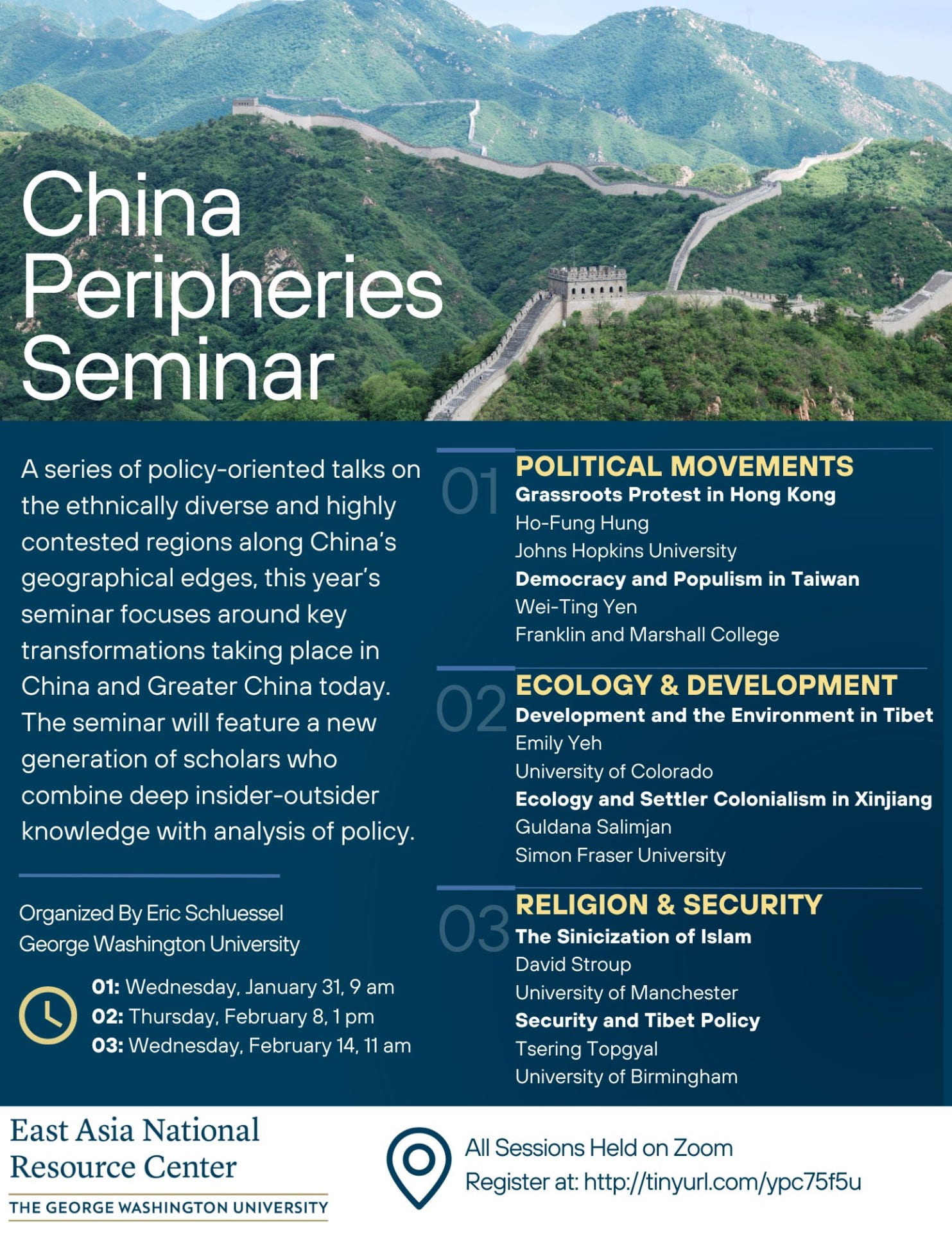
01: Wednesday, January 31, 9-11 am
02: Thursday, February 8, 1-3 pm
03: Wednesday, February 14, 11 am-1 pm
Virtual Events via Zoom
About the event:
About the Speakers
Professor Ho-Fung Hung is a highly regarded sociologist of China and author of City on the Edge: Hong Kong under Chinese Rule (2022), which places grassroots protest in contemporary Hong Kong into deep historical context.
Assistant Professor Wei-Ting Yen studies political economy issues and social policy development in the developing world. She had fieldwork experiences in Indonesia, Cambodia, and Taiwan. Her main research agenda is to understand the demand side politics of how young democracies create social protection regimes for their citizens, the majority of whom have job insecurity and income instability.
Professor Emily Yeh is a leading scholar of environment and policy in contemporary Tibet. Her 2013 monograph Taming Tibet: Landscape Transformation and the Gift of Chinese Development illuminated how environmental policy played out on the ground of a Chinese frontier, and her current research concerns entrepreneurship on the edges of the Chinese economy.
Professor Guldana Salimjan is the PI of the Xinjiang Documentation Project and author of multiple articles on the politics of environmental policy, tourism, and Han settlement in Xinjiang.
Assistant Professor David Stroup is the author of Pure and True: The Everyday Politics of Ethnicity for China’s Hui Muslims. His current research focuses on how the renegotiation of ethnic boundaries in ethnic Hui Muslim communities in the context of urbanization interacts with China’s state policies on ethnic and religious identification. His areas of specialization within the field of comparative politics include: nationalism and ethnic politics, everyday ethnicity, the politics of authoritarianism, and state-society relations.
Dr. Tsering Topgyal is the author China and Tibet: The Perils of Insecurity (2016) and the forthcoming China’s Tibet Policy: Securitizing Self-Identity, Securing Tibet. He is a political scientist with core research and teaching interests in Chinese politics and foreign policy and Asia-Pacific affairs with particular attention to security and ethno-nationalism in the region.
About the organizer:
Associate Professor Eric Schluessel (History and International Affairs at George Washington University) is a social historian of China and Central Asia, and his work focuses on Xinjiang (East Turkestan) in the nineteenth and twentieth centuries.
Registration
The event is open to the public. Guests who register for the online event will receive details for joining the Zoom meeting.


